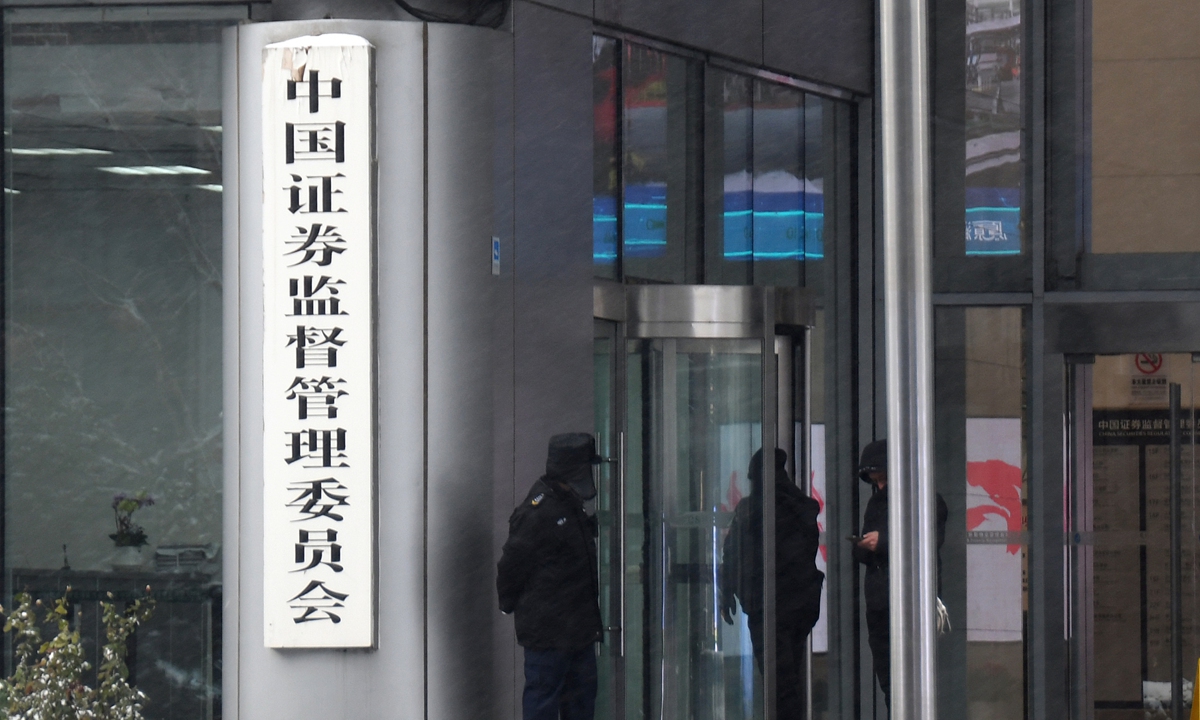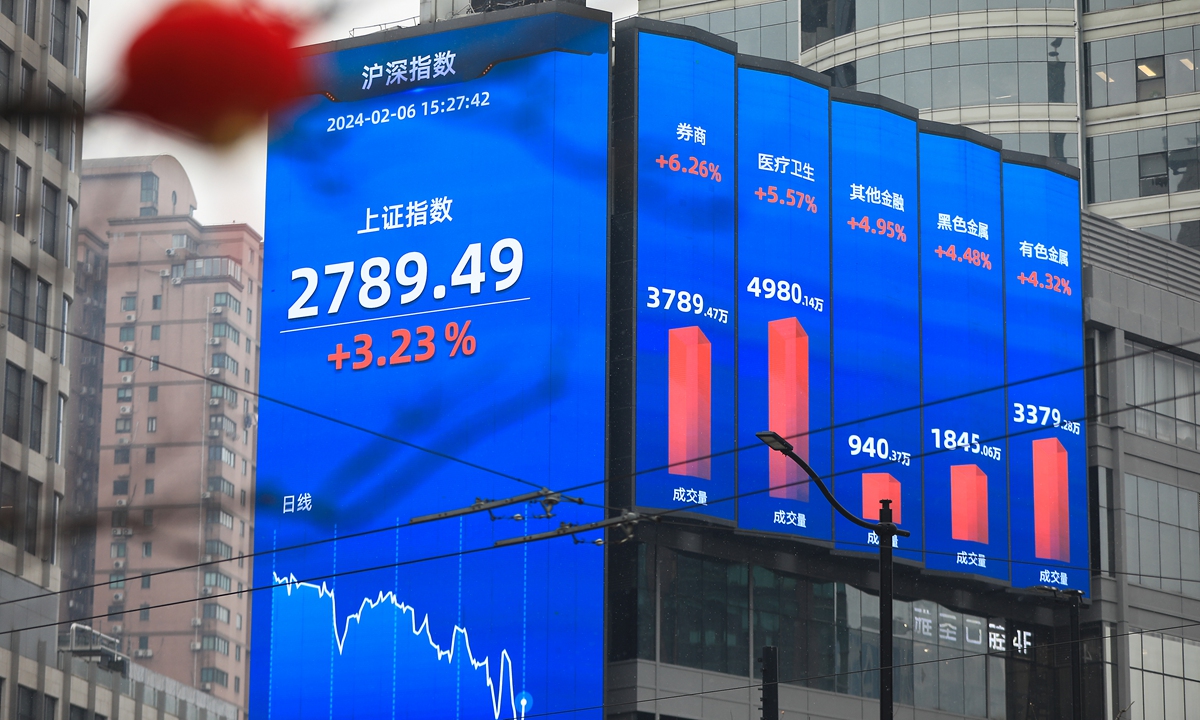China’s A-share market rallying for 6th straight trading day, as regulators vow tough oversight of quantitative trading

stock market Photo:VCG
China's benchmark Shanghai composite stock index rose for the sixth straight day on Wednesday, up nearly 1 percent to close at 2,950.96 points.All three major A-share indexes rose by over 2 percent in early afternoon trading, although the indexes pared back, closing with narrowed gains.
The Shenzhen Component index closed the day by rising 0.79 percent to 8,975.97 points, while the tech-heavy ChiNext index grew by 0.36 percent to 1,752.48 points.
Automobile makers and financial shares led the market rally. Net inflow of "northbound capital" - overseas money flowing into China's A-share market via the Hong Kong stock exchange - reached 13.6 billion yuan ($1.89 billion), data showed.
The Shanghai and Shenzhen stock exchanges both announced that they will strengthen monitoring of quant trading, especially abnormal trading behaviors and leveraged products, according to statements posted on their websites late on Tuesday. Meanwhile, new private equity funds are required to report their investment strategies to financial regulators before trading.
Quant funds consist of complex automated trading strategies to identify trading opportunities. Due to their rapid development between 2019 and 2021, the scale of quant funds in the country managed by private equity funds may have amassed 1.5 trillion yuan, the Securities Times reported in June 2023.
Also on Tuesday, the Shanghai and Shenzhen exchanges said that they have suspended Ningbo Lingjun Investment Management Partnership for three days after it had broken rules on orderly trading.
From tighter oversight of quant trading for listed companies, the Chinese authorities have taken a slew of measures to revive market confidence. Lately, the China Securities Regulatory Commission, led by its newly appointed chairman, over two days held more than 10 back-to-back meetings with a wide range of market participants to solicit suggestions on regulations, risk prevention and high-quality development of China's equities market.
On Tuesday, the Office of the Central Financial Commission and the Central Financial Work Commission, two crucial bodies in China's financial policymaking, stated that the regulators will strengthen financial oversight with "teeth and thorns" and they will enhance "regulation of the regulators."
Global Times


